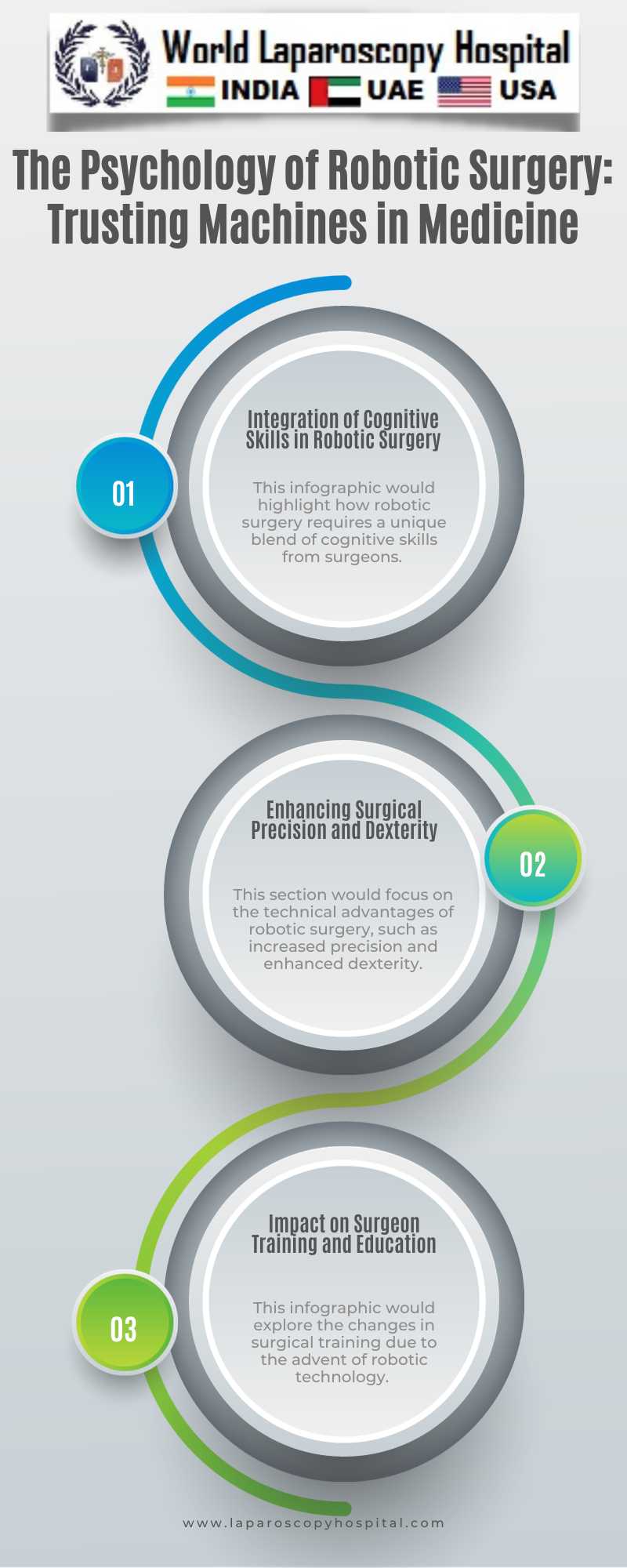Introduction
The advent of robotic surgery marks a significant milestone in the field of medicine. This technology, which allows surgeons to operate with enhanced precision and control, has revolutionized various surgical procedures. However, the integration of robotics in surgery is not just a technical advancement; it also brings forth complex psychological considerations, particularly regarding trust in machines to perform critical medical tasks.

Historical Context and Evolution
The journey of robotic surgery began with early prototypes and has evolved into sophisticated systems like the Da Vinci Surgical System. Understanding the historical context provides insight into how rapidly technology has been integrated into medical practices and how this integration has been received by both medical professionals and patients.
The Psychological Paradigm Shift
Introducing robotics into surgery required a paradigm shift in the medical community. Surgeons, traditionally reliant on their skills and tools, now have to adapt to and trust in a machine's precision. This shift brings forth questions about the psychology of trust: what does it mean to trust a machine, and how is this trust built and maintained?
Human-Machine Interaction in Surgery
This section delves into the nuances of human-machine interaction in the surgical setting. It explores how surgeons interact with robotic systems, the learning curve associated with these high-tech tools, and the cognitive processes involved in harmonizing human skills with machine capabilities.
Ethical and Psychological Considerations
The use of robotic surgery raises ethical questions, particularly concerning the delegation of surgical tasks to machines. There are psychological implications for both surgeons and patients in this delegation. For surgeons, it involves relinquishing a level of control; for patients, it requires trust in not just the surgeon but the technology as well.
Patient Perception and Acceptance
The perspective of patients towards robotic surgery plays a crucial role in its acceptance and widespread use. This part of the essay addresses how patients perceive robotic surgery, the trust they place in technology, and the psychological impact of undergoing a machine-assisted medical procedure.
The Future of Robotic Surgery and Psychological Adaptation
As robotic surgery continues to evolve, it will necessitate ongoing psychological adaptation by both healthcare professionals and patients. The future might bring more autonomous systems, raising further questions about trust, ethics, and the psychological readiness of society to embrace these changes.
Conclusion
Robotic surgery represents a significant advancement in medical technology, offering numerous benefits in terms of precision and control. However, it also brings to the forefront the psychological aspects of trusting machines in medicine. As technology continues to advance, the medical community and society at large must grapple with these psychological implications, ensuring that trust in machines complements, rather than undermines, the trust in human expertise and decision-making.
This essay highlights the crucial role of psychology in the domain of robotic surgery. As technology and medicine become increasingly intertwined, understanding and addressing the psychological aspects of this integration will be paramount in harnessing the full potential of robotic surgery while maintaining the human touch that is essential in healthcare.